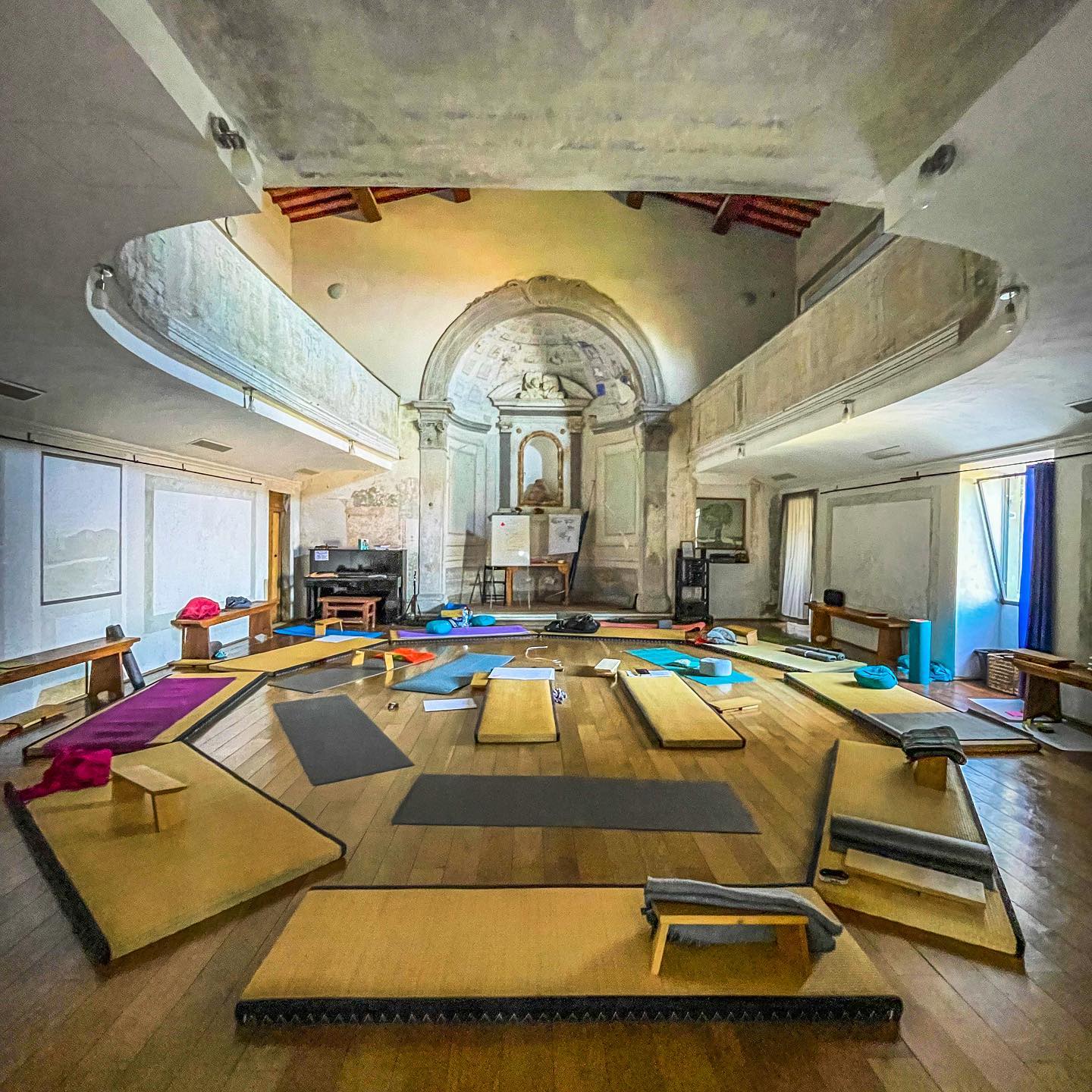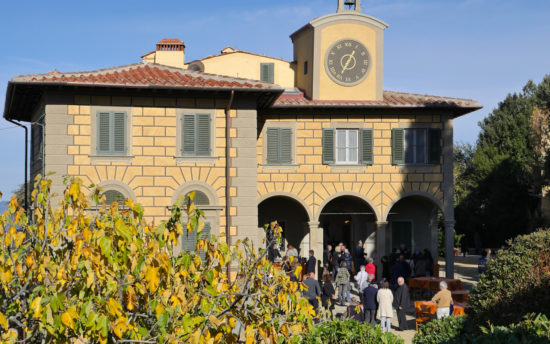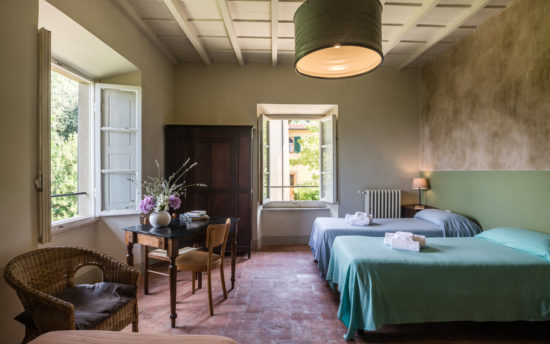
Case Valdesi 10 tips for organising a yoga retreat (or a retreat on mindfulness, theatre, biodance and much more)
A growing number of groups are meeting for residential workshops. Some call them retreats, others prefer to call them group…
A growing number of groups are meeting for residential workshops. Some call them retreats, others prefer to call them group encounters, but they are similar in essence: whether you’re a group leader, a Shiatsu teacher, a yoga trainer, a music therapy teacher or engaged in any activity where you might propose a residential stay to a group of people, we at Casa Cares, with our thirty years of experience, have chosen some tips that will make your life easier.
1. How many of us are there?
Some groups have a fixed number, meet repeatedly and already know how many people are expected; in this case, a head count is quite simple.
For the many groups that instead are formed when the idea and date are announced, it’s helpful to establish a minimum number of participants, without which the group will not take place, and a maximum number.
This makes it easier to select the facility best suited to hosting the group.
2. What kind of rooms do we want to occupy?
Retreat centres, or group spaces, can often offer different sized rooms with internal or shared services. The groups that want to keep their costs down can opt for multiple-occupancy rooms with shared bathrooms, while the group that prefers comfort can opt for double and single rooms with en suite bathrooms. Making this decision without knowing the participants’ tastes is not always easy; an ideal solution is to consider a mix of rooms to satisfy all tastes and budgets.
3. The work rooms
Depending on the type of work the group intends to do, it might be necessary to book one or more rooms with various features. If you need a room for doing movement or floor activities, or massages or yoga, it’s important to think about the size, what the floor is like, and the equipment required. If the work is done sitting down, you need to decide whether you want chairs, and also tables, or whether it is preferable to have armchairs. It’s generally a good idea to prepare a list with everything you need including equipment, from a video projector to a flipchart, a microphone or a stereo, and to check whether the accommodation has this equipment, or whether you need to bring it yourself.
4. Duration of the retreat
As you can imagine, most retreats are held over the weekend, usually from Friday to Sunday. Most retreats start on Friday afternoon and end on Sunday afternoon. This allows time for all participants to reach the workshop’s location. For those who can extend their stay, retreats of 3-4 nights let you create a really good group feeling and disconnect from routine.
5. The meals
In general, residential groups can have full board in order to work undisturbed and find their meals ready. Once defined, whether you prefer full board or half board, it’s useful to think about the day’s schedule to immediately come to an agreement with the accommodation regarding mealtimes. It’s also useful to ask whether any outside guests will be participating, to include them in the list.
6. Intolerances
Whatever services the accommodation provides for lunches – buffet or à la carte – it’s always useful to gather information on serious allergies or food intolerances and any ethical diets to communicate this to the facility at least ten days in advance. This allows the kitchen to create menus that will satisfy everyone.
7. Coffee breaks
If you plan to take breaks, make sure that the accommodation is equipped to offer coffee and snacks, and whether you need to book this service in advance or whether you can decide to use it or not when you are on site.
8. Scheduling
When should you plan a retreat? Choosing the right time isn’t easy. For already established groups with dates that have already been defined, even a year in advance is the right time to book. This will make it easier to find the date you prefer.
For the groups that have to announce the event and then collect participants, a suitable time is three months in advance. Three months before the event will still allow you to find a place, especially if your date is not too binding, allowing you to collect participants and confirm the event.
9. Promotion
For those who have a list of interested people, it will be easy to inform them of the event by email, messaging, or phone calls. If you want to expand to include new people, it’s important to use one of the websites that lists similar events, advertise in the specialised press and in social media.
10. Booking
Before announcing or advertising the event, decide in agreement with the facility whether the registrations will be collected by the group leader, who will then communicate them to the facility, or whether individual participants can contact the centre directly for retreats. Both solutions have pros and cons and there are different preferences between the group leaders as well as different availability at the facilities. Whichever you choose, it’s best to send the program schedule to the chosen group space as well as the participants, so that you can receive the best help in firming up the details of your retreat.
Do you want to organise a retreat?
At Casa Cares we have been hosting groups for over 30 years and we may also be the right place for your group.
A villa surrounded by nature, far from distractions, where the participants feel at home but have all the good things of an accommodation facility.
We have 19 rooms to accommodate up to 58 people, 4 work rooms and a large garden. We cook excellent meals with seasonal vegetables from our garden.
Casa Cares is part of Case Valdesi, Hotel e Foresterie.
Write to us at info@casacares.it



